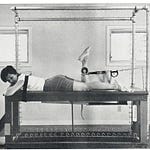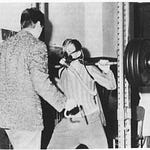
Are you frustrated with movies coming out of Hollywood today? Are you tired of the endless numbers of remakes and sequels? Are you unsatisfied with the stories that have no impact on your emotions other than to make you cringe? Or perhaps you are annoyed by the political messaging that is forced into movie scripts? Or maybe you have simply had enough of bad acting?
If you answered yes to these questions, you have my deepest sympathies. We are in the midst of a regress in romantic art, and we need to work our way out of it. Here, I want to articulate a few general points about romanticism in movies which can facilitate the romantic revolution that we need so desperately at the cinema.
First, the key ingredient to romanticism is free will. By romanticism, I do not mean romantic love, although romantic love is often featured in movies within the romantic school of art. Instead, romanticism refers to a type of art in which man is depicted as having agency or free will. By free will, I mean the ability to focus one’s mind to make decisions. I do not mean that the story’s main theme is about free will. I mean that the movie shows the main character – the hero – using cognitive effort to achieve his goals. This typically means that the main character seeks to achieve love or happiness, to solve problems, to stop crime, to win a competition, and so on.
In contrast to Romanticism, which depicts man how he ought to be or could be, with the hero being the ideal embodiment of this, the Naturalistic school of art depicts man as a sort of helpless being who has limited or no capacity for free will and thus little or no ability to improve his life. Movies from the Naturalistic school lack true heroes. Main characters in these movies often go through mundane daily activities or get beaten down by their environments. They lack ambition and goals and have little command over Nature, including their own impulses. Such characters might be drug addicts, criminals, or bad parents, usually the types of individuals who make for the bad guys in romantic movies.
Second, the most important aspect of a movie is its plot. The plot (correctly developed), according to novelist and philosopher Ayn Rand, is a “purposeful progression of logically connected events leading to the resolution of the climax.” In a romantic movie, the plot typically revolves around the hero making various decisions and taking certain actions to overcome challenges to achieve his goals. The climax of a Romantic movie is usually the point in the plot where the hero makes his final and most important decision – a decision that resolves the story and all other characters linked to it.
In a naturalistic movie, the plot will feel more disjointed or confused, with connections between scenes and characters not entirely clear. Life does involve a series of connected decisions. Thus, a rational viewer of a Naturalistic movie that has little logic in its plot structure is likely to feel uneasy while watching it. The viewer’s uneasiness stems from the fact that they are being shown something that is antithetical to life. Though neither bad acting nor subpar cinematography are desirable in a movie, a movie’s plot is its most important feature because its progression reflects the degree to which the script writer believes that man does or does not have free will.
Movies, like all other art, reflect the artist’s and thus society’s value premises. The reason that many of today’s movies do not move your soul is because values are often not taken seriously, and when they are taken seriously, they are not in line with human nature and flourishing. We also live in an age where it is considered offensive to show that one way of life is objectively better than another. And this creates a state of moral ambiguity without clear distinctions between good and evil and right and wrong. Moreover, some of today’s supposed most prominent intellectuals have declared that free will is an illusion and that you stand no chance against your environment, unless of course, you relinquish your freedoms to them so that they can control the environment for you. In other words, you are told that you can cannot control your own destiny – that is, your own journey or life plot. For a romantic revolution to occur in the cinema, free will and its role in plot structure must be understood and defended.
Related Content at The Nuzzo Letter
SUPPORT THE NUZZO LETTER
If you appreciated this content, please consider supporting The Nuzzo Letter with a one-time or recurring donation. Your support is greatly appreciated. It helps me to continue to work on independent research projects and fight for my evidence-based discourse. To donate, click the DonorBox logo. In two simple steps, you can donate using ApplePay, PayPal, or another service. Thank you.

















Share this post